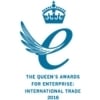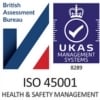In the realm of manufacturing, precision and consistency are paramount.
The process of die casting - a widely used method in the production of complex metal components - demands a rigorous commitment to quality control. Allowing for the creation of intricate and accurately shaped parts, die casting is a preferred choice in industries such as automotive, aerospace and healthcare, but despite its efficiency and versatility, the success of a die casting project hinges on the application of stringent quality control measures.
The Importance of Quality Control in Die Casting
Quality control encompasses various practices, techniques and technologies which ensure die cast parts will meet their required specification.
When choosing a foundry to produce components, it’s essential that your high standards of precision and durability are recognised as non-negotiable. Often, the level of investment given to quality control will demonstrate your chosen partner’s commitment to delivering on these necessities.
Quality control procedures should aim to deliver…
- Product Consistency. Die casting involves producing large quantities of identical parts. Consistency in terms of dimensions, surface finish, and mechanical properties is crucial. Quality control measures such as regular inspections, dimensional measurements, and material testing help maintain this consistency.
- Defect Minimisation. The UK die casting industry operates in sectors where safety and reliability are crucial. Any defects in the components could have serious consequences. Quality control practices, including real-time monitoring and process optimisation, help minimise defects and ensure that only parts meeting stringent criteria make it to the final product stage.
- Cost Efficiency. Detecting and correcting defects in the later stages of production can be incredibly costly. By implementing quality control measures from the outset, manufacturers can identify issues early and reduce the need for rework or component rejection.
- Customer Satisfaction. Meeting customer expectations is vital in any industry. In the die casting industry, where precision and performance are top priorities, adhering to quality control standards not only satisfies customers but also enhances the industry's reputation for excellence.
Quality Control Practices in the Die Casting Industry
A trusted die casting partner will aim to work with you very closely. This is because quality – at its core – is all about meeting customer requirements. A foundry can only achieve this if they understand your needs, through and through.
When choosing a die casting partner, quality control practices to look out for include…
- Understanding of your specific needs. Information regarding your requirements should be made available to production staff, through training and detailed production documentation. Before committing to a project, ask your die casting partner if they can provide examples of this.
- Certified quality management systems. ISO 9001 is an internationally recognised standard for quality management systems (QMS). It provides a framework that organisations can follow to establish, implement, monitor and improve their internal processes and systems, to consistently deliver products and services that meet customer requirements and expectations.
- Open invitations to visit and audit premises. The modern foundry is often a very impressive facility, filled with the latest technology and a skilled workforce. Your chosen partner should feel comfortable to give you a tour and allow you to send in your own auditors, if required.
- The latest inspection technology. This may include CNC Co-ordinate Measuring Machines, specialised inspection software such as PC-Dmis, and spectrometers for in-house analysis. A visual inspection is important to round off the process, too.
- Commitment to staff training and development. Employees should possess not only the necessary technical competencies for the operations they perform, but also a deep understanding of the specific customer demands tied to each product segment. This improves their knowledge of the final application of your component, and the critical features required therein.
Quality control is the cornerstone of the UK die casting industry.
With its emphasis on precision, consistency and durability, the industry relies on robust quality control practices to ensure that components are produced to the highest standards. As technology advances, the marriage of traditional craftsmanship with cutting-edge inspection techniques promises to elevate the industry's reputation for excellence even further.








